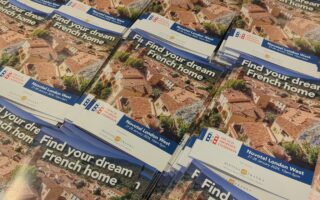Advice on diabetes in France

Managing child healthcare in Centre
In 2008, Roger and Agnes Williams relocated to France from west Wales. One of the main benefits has been better health care options for their four-year-old son, Ioan, who has type 1 diabetes.
The family now live near Agnes’ parents in Montargis (Centre) in a traditional town house that originally needed a lot of work. Selling their home in the UK wasn’t easy – it involved a significant loss of money and meant moving in with Agnes parents when they first arrived in France.
Having previously been employed as a teacher in Wales, Roger has found a job teaching English in a centre in France that helps disabled people integrate into the world of work. He did, however, still have to spend months working in a factory. In such an environment, Roger was forced to speak French which helped him integrate abroad.
Meanwhile, his wife looks after Ioan and his two-year-old brother at home. Ioan was diagnosed with type 1 diabetes two years ago. Back in the UK, this was treated with an injection pen but in France Ioan has access to a pump that offers more flexibility at his age. The pump contains insulin, which Ioan needs to have injected after he has eaten meals containing carbohydrate: pasta, potatoes and sweet foods.
So far, the family has found the support provided by nurses and doctors in France to be more comprehensive than in the UK. There are more regular checks on Ioan’s health and resources are more extensive.
Ioan had a pump on Ioan within two weeks of arriving in France but as his father Roger recalls, “In Wales we had to make a request via the nurse to the local health board. If successful, there would be a long waiting period of maybe a year”.
He added, “The French approach to healthcare reminds me of when I would visit the doctor as a child back in the 70s, they have time to talk to you as a person”. Roger’s wife, Agnes, is French and so the family had no problem integrating into the French healthcare system.
They didn’t struggle with medical terminology either, though Roger admits that with regards to Ioan’s diabetes, “Many words in French are simply a variation of the English, or vice-versa, so I’ve not picked up anything very new to be honest.”
According to Roger, diabetes has been given a special status within the health system, which means it is refunded fully by the state: “This recent change has given us peace of mind as the medicine and associated equipment is very expensive. Complementary health insurance is big business in France. It’s not required but in my experience, recommended.
“The strain on the health system is increasing but is nowhere near what we experienced in Wales. If the health system in the UK had more staff and more equipment, they would be an equal. I hope this will be the case soon.”
Lead photo credit : One in five French people over 75 have not yet received a first dose of the Covid-19 vaccine. (C) Mufid Majnun, Unsplash
Share to: Facebook Twitter LinkedIn Email
More in businesses, centre, family, food, health, insurance, work
Leave a reply
Your email address will not be published. Required fields are marked *



